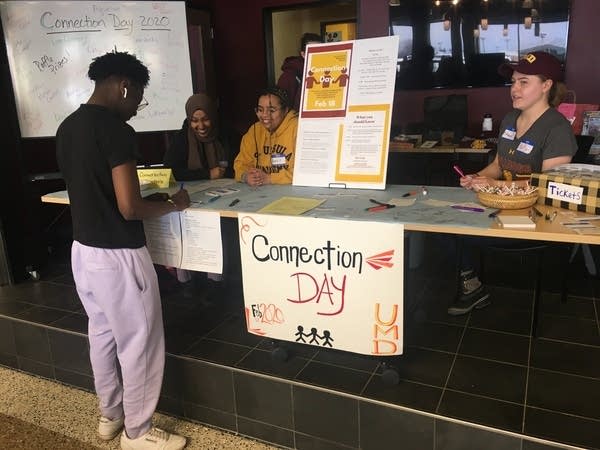Phones are making us more disconnected than ever. These UMD students want to change that

A University of Minnesota Duluth student signs up for Connection Day Tuesday, in which students pledged to take one action to connect with a fellow student.
Dan Kraker | MPR News
Go Deeper.
Create an account or log in to save stories.
Like this?
Thanks for liking this story! We have added it to a list of your favorite stories.


